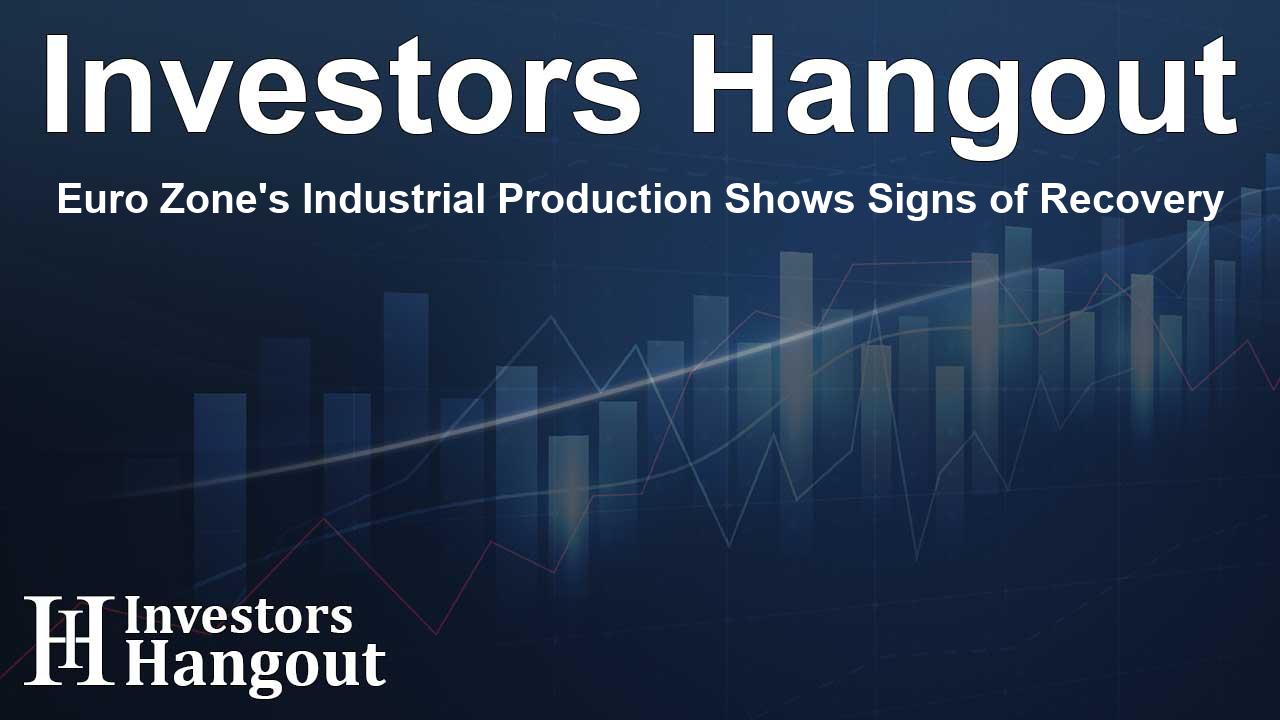Euro Zone's Industrial Production Shows Signs of Recovery

Euro Zone's Industrial Production Reports Modest Growth
Recent reports indicate that the industrial sector in the Euro zone has shown a slight rebound in November. According to the latest data released by Eurostat, industrial production rose by 0.2% compared to October. This increase is primarily attributed to heightened production in energy and consumer durable goods.
Current Challenges Facing the Industry
Despite the recent upward trend in production, the overall output compared to the same period last year remains concerning, with a decline of 1.9%. This persistent drop illustrates that the industry is still grappling with the effects of a prolonged recession. Factors such as soaring energy prices, decreasing demand from Asian markets, and heightened competition are weighing heavily on performance.
Impact of German Economy
Germany, being the largest economy in the Euro zone, is significantly affected by these industrial challenges. Reports suggest that the country experienced the most considerable decline in industrial output among its peers in the region. The persistent issues within Germany's car sector, which struggles to adapt to evolving consumer preferences, have further exacerbated this decline.
Prospects for Recovery
While the monthly production numbers can be volatile, the ongoing trend of disappointing order figures, particularly from Germany, suggests that a substantial recovery is not imminent. Analysts remain cautious, although they speculate that the sector may be nearing its lowest point.
Overall Impact on Euro Zone Growth
This downturn has negative implications for the broader Euro zone economy. It is anticipated that the sluggish output in the industrial sector may contribute to the overall growth of the Euro zone remaining below 1% for the upcoming year. In fact, this decline may pull Germany's growth into negative territory once again, marking the second consecutive year of contraction.
Conclusion: Weighing on the Future
The challenges faced by the Euro zone's industrial sector are multifaceted and ongoing. The combination of high energy costs, low demand, and fierce competition paints a pessimistic picture for recovery. As countries like Germany continue to struggle, it becomes increasingly clear that the industrial landscape is in need of significant adjustment and support.
Frequently Asked Questions
What was the change in industrial production for the Euro zone in November?
Industrial production saw a rise of 0.2% in November compared to the previous month.
What are the main factors affecting the Euro zone's industrial sector?
The industry faces challenges from high energy costs, low demand from Asia, and increased competition.
Which country in the Euro zone experienced the largest decline in industrial output?
Germany recorded the most significant drop in industrial output compared to its Euro zone counterparts.
How is the industrial slump affecting Euro zone's overall economic growth?
The industrial slump is likely to keep overall growth in the Euro zone well below 1%.
Is there a possibility of recovery for the Euro zone's industry?
While there are slight signs of recovery, analysts caution that a meaningful recovery is not expected in the near future.
About Investors Hangout
Investors Hangout is a leading online stock forum for financial discussion and learning, offering a wide range of free tools and resources. It draws in traders of all levels, who exchange market knowledge, investigate trading tactics, and keep an eye on industry developments in real time. Featuring financial articles, stock message boards, quotes, charts, company profiles, and live news updates. Through cooperative learning and a wealth of informational resources, it helps users from novices creating their first portfolios to experts honing their techniques. Join Investors Hangout today: https://investorshangout.com/
Disclaimer: The content of this article is solely for general informational purposes only; it does not represent legal, financial, or investment advice. Investors Hangout does not offer financial advice; the author is not a licensed financial advisor. Consult a qualified advisor before making any financial or investment decisions based on this article. The author's interpretation of publicly available data shapes the opinions presented here; as a result, they should not be taken as advice to purchase, sell, or hold any securities mentioned or any other investments. The author does not guarantee the accuracy, completeness, or timeliness of any material, providing it "as is." Information and market conditions may change; past performance is not indicative of future outcomes. If any of the material offered here is inaccurate, please contact us for corrections.